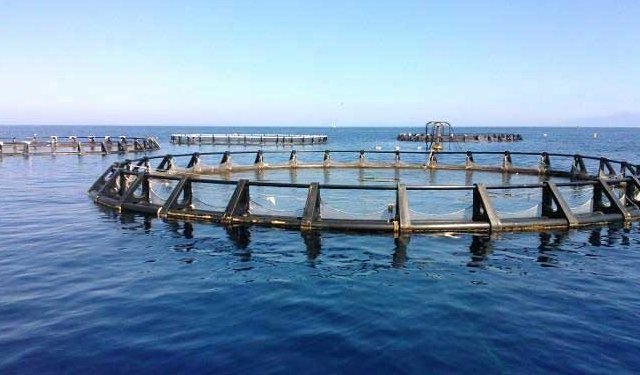Ethical Seafood Research & AU-IBAR Launch Factsheet on Aquatic Animal Welfare in Africa – The welfare of aquatic animals in Africa is a topic of growing concern, as the continent experiences rapid development in the fisheries and aquaculture sectors.
The use of aquatic animals for food or other human activities or any other purpose carries the ethical responsibility to avoid the unnecessary suffering of these animals. As with all animals, the relationship between health and welfare is also critical for aquatic animals. As such, it is essential to develop and implement comprehensive standards and regulations that cover the health and welfare needs of this unique group of animals.
Poor welfare of aquatic animals can increase their susceptibility to infection thereby endangering both animal and human health and welfare. In contrast, aquatic animal welfare can have positive economic impacts such as the need to use antimicrobial agents and reducing mass mortality events. Well-managed fisheries and aquaculture operations that prioritise animal welfare attract conscientious consumers and can improve market access. Additionally, eco-tourism opportunities related to aquatic animals, such as snorkelling around coral reefs and whale watching, can generate revenue and support local communities. The responsible care of aquatic animals is important to ensuring public health, food safety, biodiversity conservation and environmental protection.
Recognizing the need to prioritize the humane treatment of aquatic animals, the African Union-InterAfrican Bureau for Animal Resources (AU-IBAR) and Ethical Seafood Research (ESR) have collaborated to produce a comprehensive factsheet on Aquatic Animal Welfare in Africa. This factsheet aims to highlight the importance of aquatic animal welfare, particularly in the context of capture fisheries and aquaculture, and to raise awareness about the need to preserve it.
Significance of Aquatic Animal Welfare
Aquatic animals, including fish, shellfish, and marine mammals, play pivotal roles in Africa’s ecosystems. Concurrently, the production and consumption of aquatic animal-derived foods are rapidly increasing, making substantial contributions to human nutrition, poverty alleviation, and sustainable development. However, to genuinely advance the United Nations’ Sustainable Development Goals (SDGs), and Agenda 2063, enhancing our humane treatment of aquatic animals, concerning issues affected by human activities, is imperative. AU-IBAR and ESR emphasize the inherent link between the health and welfare of animals and the well-being of both people and the planet.
The fact sheet (https://ethicalseafoodresearch.com/wp-content/uploads/2024/04/Factsheet-ESR-AU-IBAR-final.pdf) covers the importance of aquatic animal welfare in maintaining ecosystem health and supporting sustainable fisheries and aquaculture, crucial for coastal and other aquatic animal-dependent community livelihoods. It advocates for conservation efforts to protect Africa’s aquatic biodiversity and emphasizes the need for standards to ensure humane treatment. Additionally, it highlights economic benefits, the importance of education, and international cooperation in addressing these issues comprehensively.
AU-IBAR and ESR advocate for a concerted effort to prioritize the welfare of aquatic animals in Africa. By promoting ethical treatment and responsible practices, we can uphold the integrity of aquatic ecosystems, ensure sustainable resource use, and advance the well-being of both people and the planet.

The African Union – Inter African Bureau for Animal Resources is a specialized technical office of the Department of Agriculture, Rural Development, Blue Economy, and Sustainable Environment (DARBE) under the auspices of the African Union Commission. It plays a crucial role in promoting the sustainable development of animal resources across the African continent through policy development, research, and capacity-building initiatives. Concerning the fisheries and aquaculture sector, AU-IBAR supports sustainable fisheries and aquaculture in Africa through policy assistance and capacity building while addressing animal health and welfare concerns to safeguard aquatic ecosystems.
On the other hand, Ethical Seafood Research provides comprehensive research services tailored to fisheries, aquaculture, marine conservation, and aquatic animal welfare, aiding in the development of sustainable practices and policies. By integrating scientific expertise with ethical considerations, ESR endeavors to address the complex challenges facing the seafood industry while promoting environmental stewardship and aquatic animal welfare.
Raising awareness about aquatic animal health and welfare is crucial. Educational programs and campaigns can inform stakeholders, including fishers, fish farmers, policymakers, and consumers, about the importance of ethical treatment and responsible practices. Fostering a culture that appreciates the intrinsic value of aquatic animals can inspire positive change and encourage sustainable resource use.
Ethical Seafood Research & AU-IBAR Launch Factsheet on Aquatic Animal Welfare in Africa









